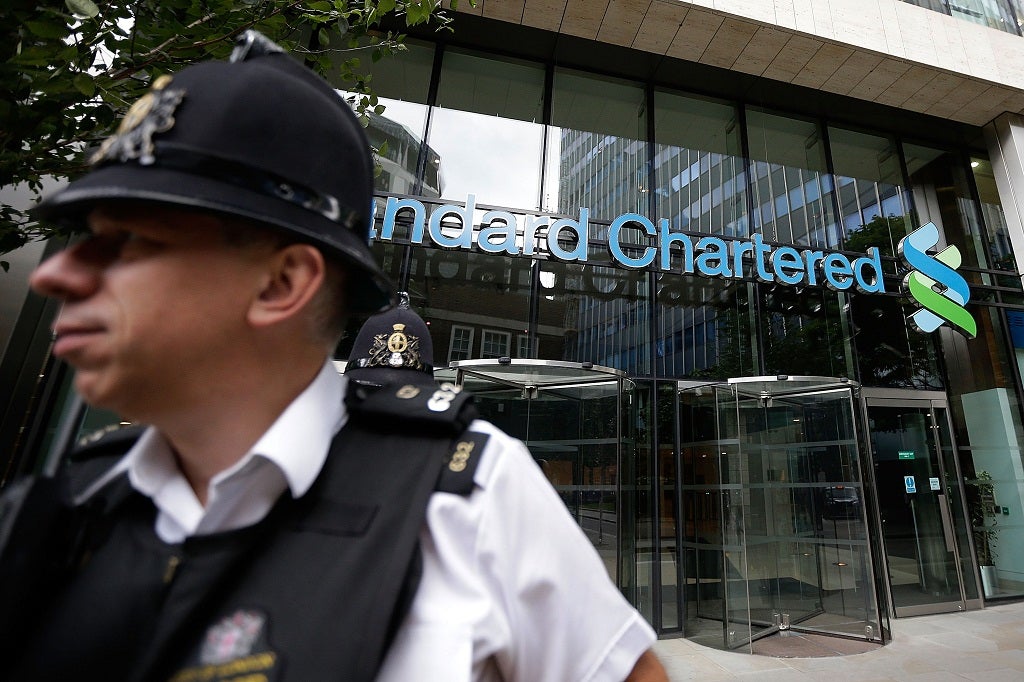The reckoning arrives for Standard Chartered’s shareholders
Outlook

Your support helps us to tell the story
From reproductive rights to climate change to Big Tech, The Independent is on the ground when the story is developing. Whether it's investigating the financials of Elon Musk's pro-Trump PAC or producing our latest documentary, 'The A Word', which shines a light on the American women fighting for reproductive rights, we know how important it is to parse out the facts from the messaging.
At such a critical moment in US history, we need reporters on the ground. Your donation allows us to keep sending journalists to speak to both sides of the story.
The Independent is trusted by Americans across the entire political spectrum. And unlike many other quality news outlets, we choose not to lock Americans out of our reporting and analysis with paywalls. We believe quality journalism should be available to everyone, paid for by those who can afford it.
Your support makes all the difference.When banks aren’t busy bashing their customers, they’re quite keen on bashing themselves. Take Standard Chartered. Once a candidate for the title of world’s best bank – it increased profits and dividends throughout the financial crisis – it then fell into a familiar trap. Its bosses started to believe their own hype, while a complacent corps of non-executive directors failed to notice the wheels slowly falling off.
Now the bank and its shareholders are reaping the whirlwind as new chief executive Bill Winters battles to right a ship that isn’t quite sinking, but certainly listing.
Standard Chartered has just reported its first quarterly loss in 15 years. Expectations had been reduced, but the City consensus was for a profit of just over £900m – a clear sign of just how bad things have got.
The hallowed dividend has also been suspended as Mr Winters grapples with multiple challenges, not least from the regulatory authorities over its systems and controls and involvement in sanctions busting, among other things.
There are also writedowns, bad bets and bad lending to businesses in places like China and India, and the possibility of worse to come. As a result, 15,000 jobs will go globally and the bank will batten down the hatches, improve its risk controls and compliance functions, and pivot towards wealth management and retail banking.
Shareholders will take their share of the pain through a £3.3bn rights issue. It could have been worse. It might still be.
But it’s no more than they deserve. They were, for too long, content to sit back and cheer from the sidelines as the board members they employed patted themselves on the back, and composed eulogies to former chief executive Peter Sands.
You might think they’d have learnt a valuable lesson about the virtues of engagement, scrutiny and scepticism. But I wouldn’t be too hopeful of that.
Join our commenting forum
Join thought-provoking conversations, follow other Independent readers and see their replies
Comments